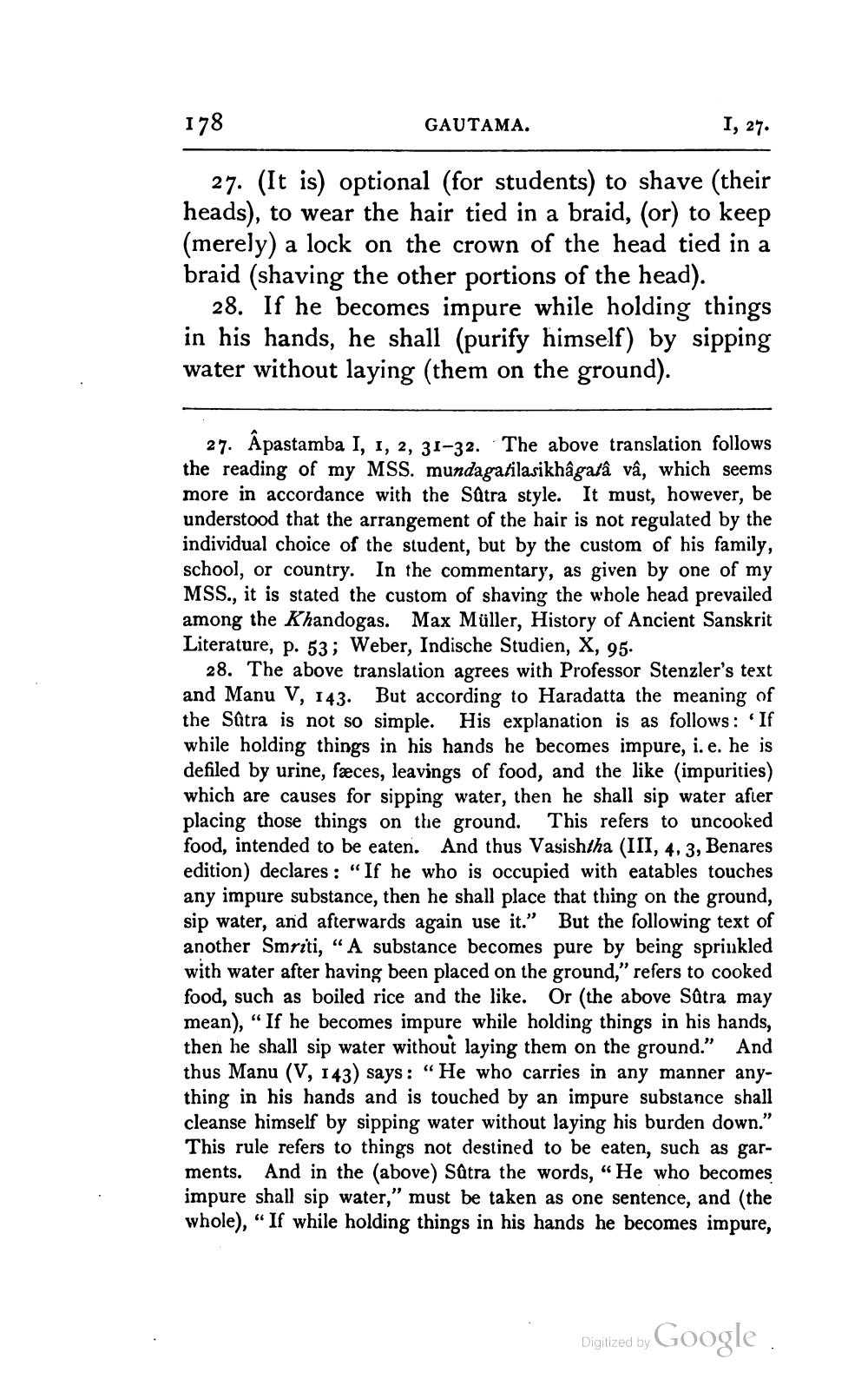________________
178
27. (It is) optional (for students) to shave (their heads), to wear the hair tied in a braid, (or) to keep (merely) a lock on the crown of the head tied in a braid (shaving the other portions of the head).
28. If he becomes impure while holding things in his hands, he shall (purify himself) by sipping water without laying (them on the ground).
GAUTAMA.
I, 27.
27. Âpastamba I, 1, 2, 31-32. The above translation follows the reading of my MSS. mundagatilasikhâgatâ vâ, which seems more in accordance with the Sutra style. It must, however, be understood that the arrangement of the hair is not regulated by the individual choice of the student, but by the custom of his family, school, or country. In the commentary, as given by one of my MSS., it is stated the custom of shaving the whole head prevailed among the Khandogas. Max Müller, History of Ancient Sanskrit Literature, p. 53; Weber, Indische Studien, X, 95
28. The above translation agrees with Professor Stenzler's text and Manu V, 143. But according to Haradatta the meaning of the Sûtra is not so simple. His explanation is as follows: 'If while holding things in his hands he becomes impure, i. e. he is defiled by urine, fæces, leavings of food, and the like (impurities) which are causes for sipping water, then he shall sip water after placing those things on the ground. This refers to uncooked food, intended to be eaten. And thus Vasishtha (III, 4, 3, Benares edition) declares: "If he who is occupied with eatables touches any impure substance, then he shall place that thing on the ground, sip water, and afterwards again use it." But the following text of another Smriti, "A substance becomes pure by being sprinkled with water after having been placed on the ground," refers to cooked food, such as boiled rice and the like. Or (the above Sûtra may mean), "If he becomes impure while holding things in his hands, then he shall sip water without laying them on the ground." And thus Manu (V, 143) says: "He who carries in any manner anything in his hands and is touched by an impure substance shall cleanse himself by sipping water without laying his burden down." This rule refers to things not destined to be eaten, such as garments. And in the (above) Sûtra the words, "He who becomes impure shall sip water," must be taken as one sentence, and (the whole), "If while holding things in his hands he becomes impure,
Digitized by
Google




